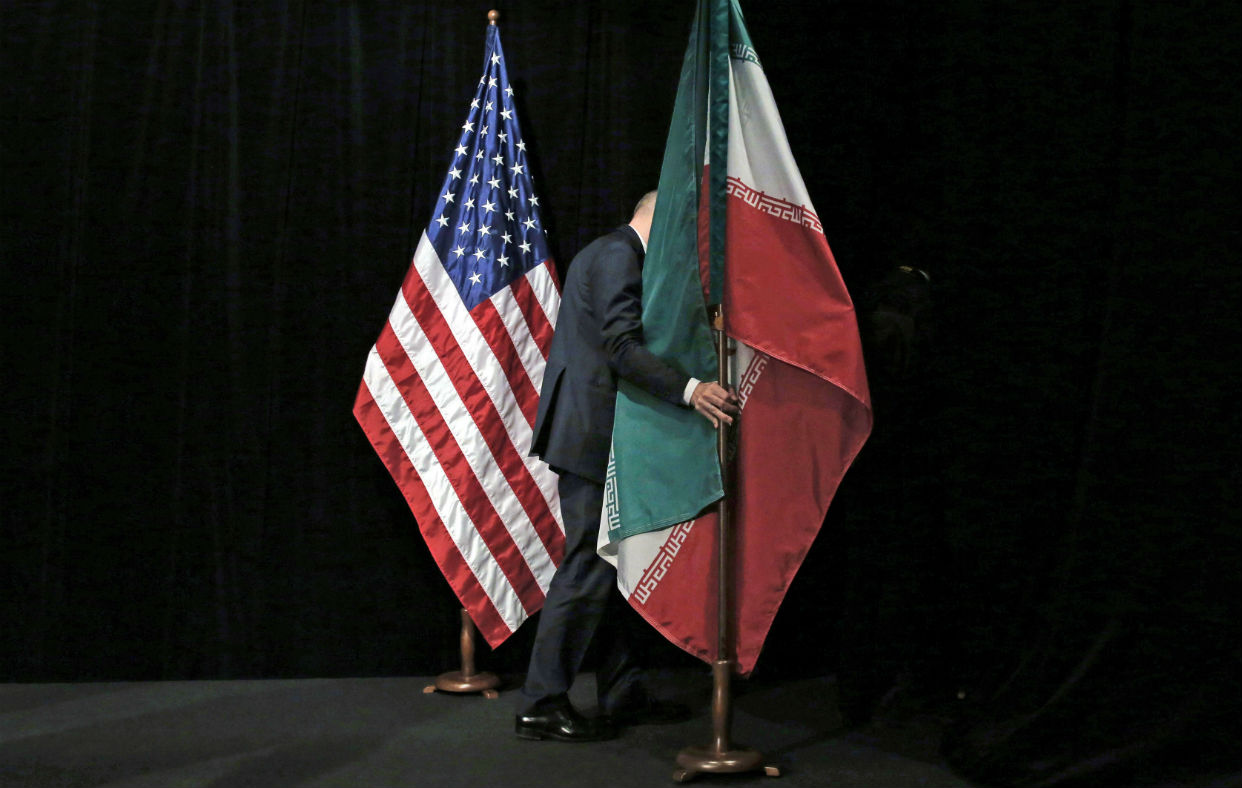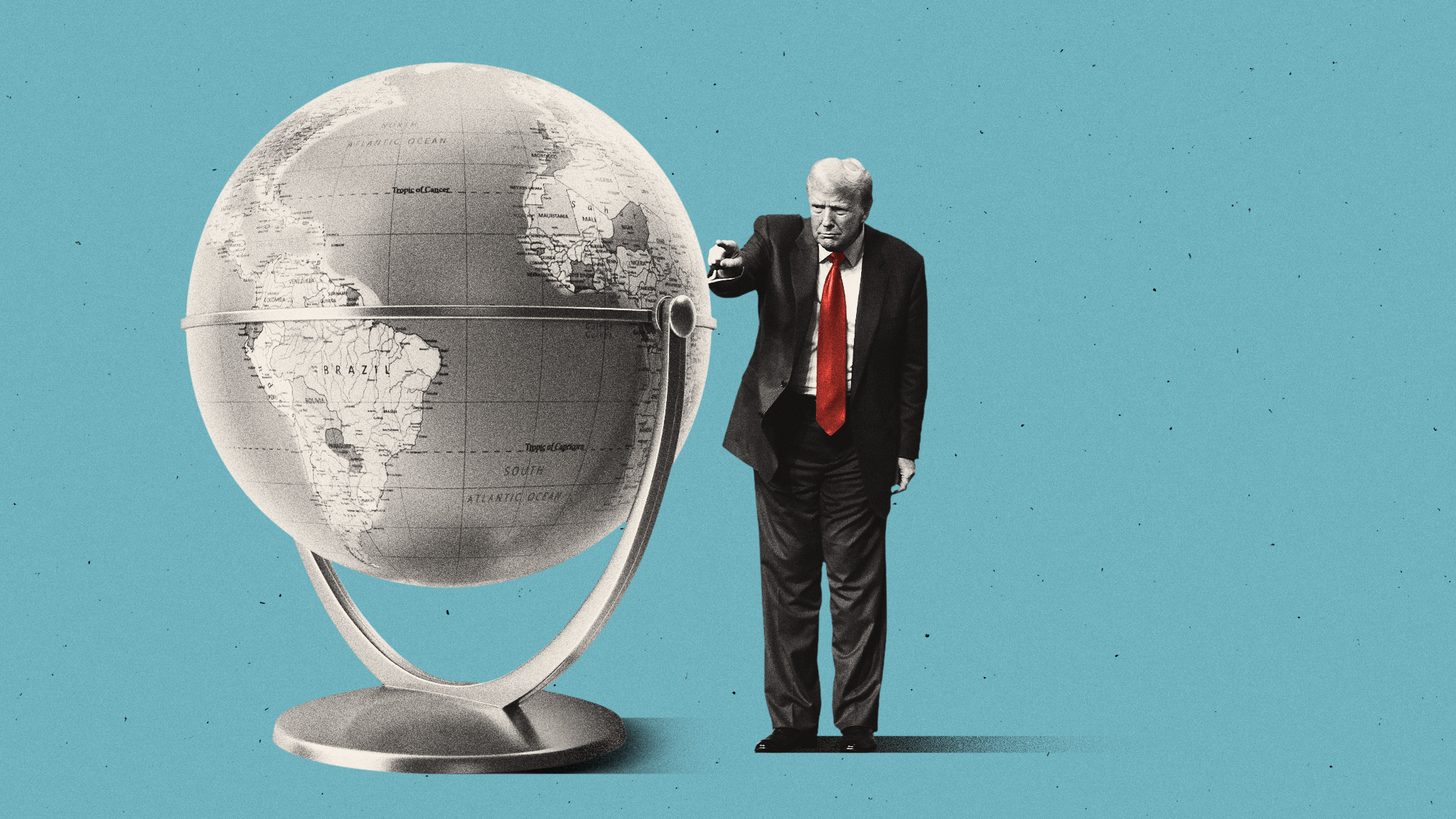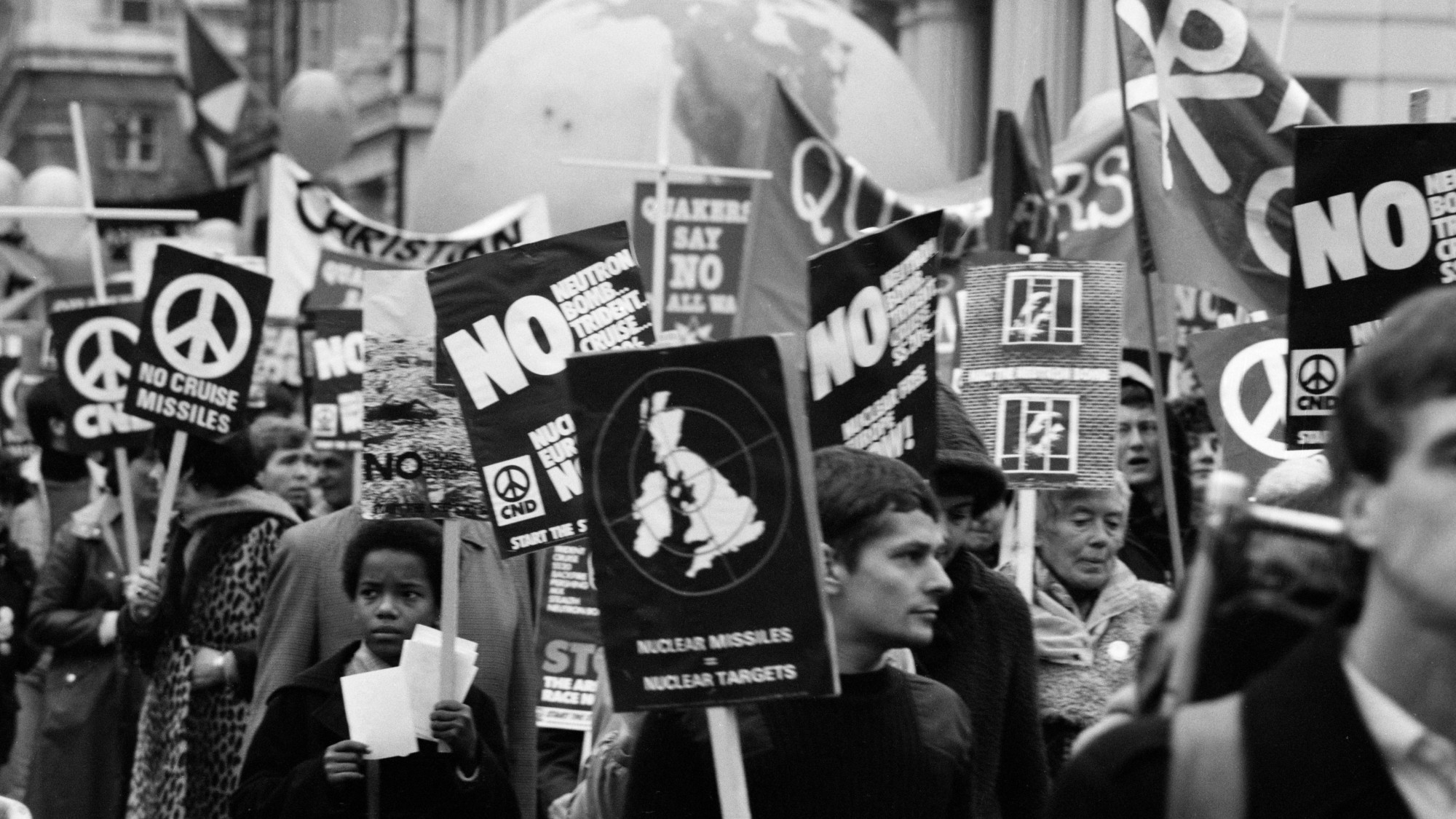Iran threatens to restart nuclear programme 'within five days'
If the US pulls out of the deal that ended sanctions, Iran says it will start enriching uranium immediately

A free daily email with the biggest news stories of the day – and the best features from TheWeek.com
You are now subscribed
Your newsletter sign-up was successful
Iran has said it could begin the process of producing nuclear weapons in less than a week if the US pulls out of the agreement that ended international sanctions on the country.
Ali Akbar Salehi, one of the country's vice presidents and head of its atomic programme, told the state-sponsored Press TV network that he was "committed to the 2015 deal and loyal to it" - but said efforts to resume enriching uranium to the 20 per cent level needed for a bomb could be resumed within just five days.
As part of a landmark deal agreed in 2015 with the US, Russia, UK, France and Germany, Iran agreed to limit its uranium enrichment to the five per cent level needed for power stations and reduce its stockpile of nuclear material. In exchange, sanctions were lifted.
The Week
Escape your echo chamber. Get the facts behind the news, plus analysis from multiple perspectives.

Sign up for The Week's Free Newsletters
From our morning news briefing to a weekly Good News Newsletter, get the best of The Week delivered directly to your inbox.
From our morning news briefing to a weekly Good News Newsletter, get the best of The Week delivered directly to your inbox.
Sakehi's comments follow a hardening of rhetoric from Tehran over the summer, "in apparent reaction to increased sanctions imposed by America this month", says The Independent.
In July, the US treasury imposed sanctions on six Iranian firms for their role in the development of a ballistic missile program after Tehran launched a rocket capable of putting a satellite into orbit. The US Senate also placed fresh sanctions on Iran's Revolutionary Guard.
This prompted moderate President Hassan Rouhani, who won a second term earlier this year primarily because of the agreement, to warn that the US threat to reimpose economic penalties would give Iran a reason to build up its nuclear resources.
Boasting of the speed with which the country could increase its nuclear capability, he said that "in an hour and a day, Iran could return to a more advanced level than at the beginning of the negotiations".
A free daily email with the biggest news stories of the day – and the best features from TheWeek.com
As a candidate, Donald Trump repeatedly denounced the multilateral agreement spearheaded by Barack Obama as "the worst ever deal" and as President he has accused Iran of violating the "spirit" of the deal.
Nevertheless, the Trump administration has so far decided not to withdraw the US from the agreement. According to reports in US media, a joint effort by US Secretary of State Rex Tillerson, Defence Secretary James Mattis and Trump's son-in-law Jared Kushner was instrumental in convincing the President that it was in the US's interest to stay for now.
-
 Witkoff and Kushner tackle Ukraine, Iran in Geneva
Witkoff and Kushner tackle Ukraine, Iran in GenevaSpeed Read Steve Witkoff and Jared Kushner held negotiations aimed at securing a nuclear deal with Iran and an end to Russia’s war in Ukraine
-
 What to expect financially before getting a pet
What to expect financially before getting a petthe explainer Be responsible for both your furry friend and your wallet
-
 Pentagon spokesperson forced out as DHS’s resigns
Pentagon spokesperson forced out as DHS’s resignsSpeed Read Senior military adviser Col. David Butler was fired by Pete Hegseth and Homeland Security spokesperson Tricia McLaughlin is resigning
-
 Munich Security Conference: a showdown between Europe and Trump?
Munich Security Conference: a showdown between Europe and Trump?Today’s Big Question Report suggests European leaders believe they can no longer rely on the US for military support – but decoupling is easier said than done
-
 New START: the final US-Russia nuclear treaty about to expire
New START: the final US-Russia nuclear treaty about to expireThe Explainer The last agreement between Washington and Moscow expires within weeks
-
 Would Europe defend Greenland from US aggression?
Would Europe defend Greenland from US aggression?Today’s Big Question ‘Mildness’ of EU pushback against Trump provocation ‘illustrates the bind Europe finds itself in’
-
 Greenland, Colombia, Cuba: where is Donald Trump eyeing up next?
Greenland, Colombia, Cuba: where is Donald Trump eyeing up next?Today's Big Question Ousting Venezuela’s leader could embolden the US administration to exert its dominance elsewhere
-
 The history of US nuclear weapons on UK soil
The history of US nuclear weapons on UK soilThe Explainer Arrangement has led to protests and dangerous mishaps
-
 Did Trump just end the US-Europe alliance?
Did Trump just end the US-Europe alliance?Today's Big Question New US national security policy drops ‘grenade’ on Europe and should serve as ‘the mother of all wake-up calls’
-
 Trump peace deal: an offer Zelenskyy can’t refuse?
Trump peace deal: an offer Zelenskyy can’t refuse?Today’s Big Question ‘Unpalatable’ US plan may strengthen embattled Ukrainian president at home
-
 Vladimir Putin’s ‘nuclear tsunami’ missile
Vladimir Putin’s ‘nuclear tsunami’ missileThe Explainer Russian president has boasted that there is no way to intercept the new weapon